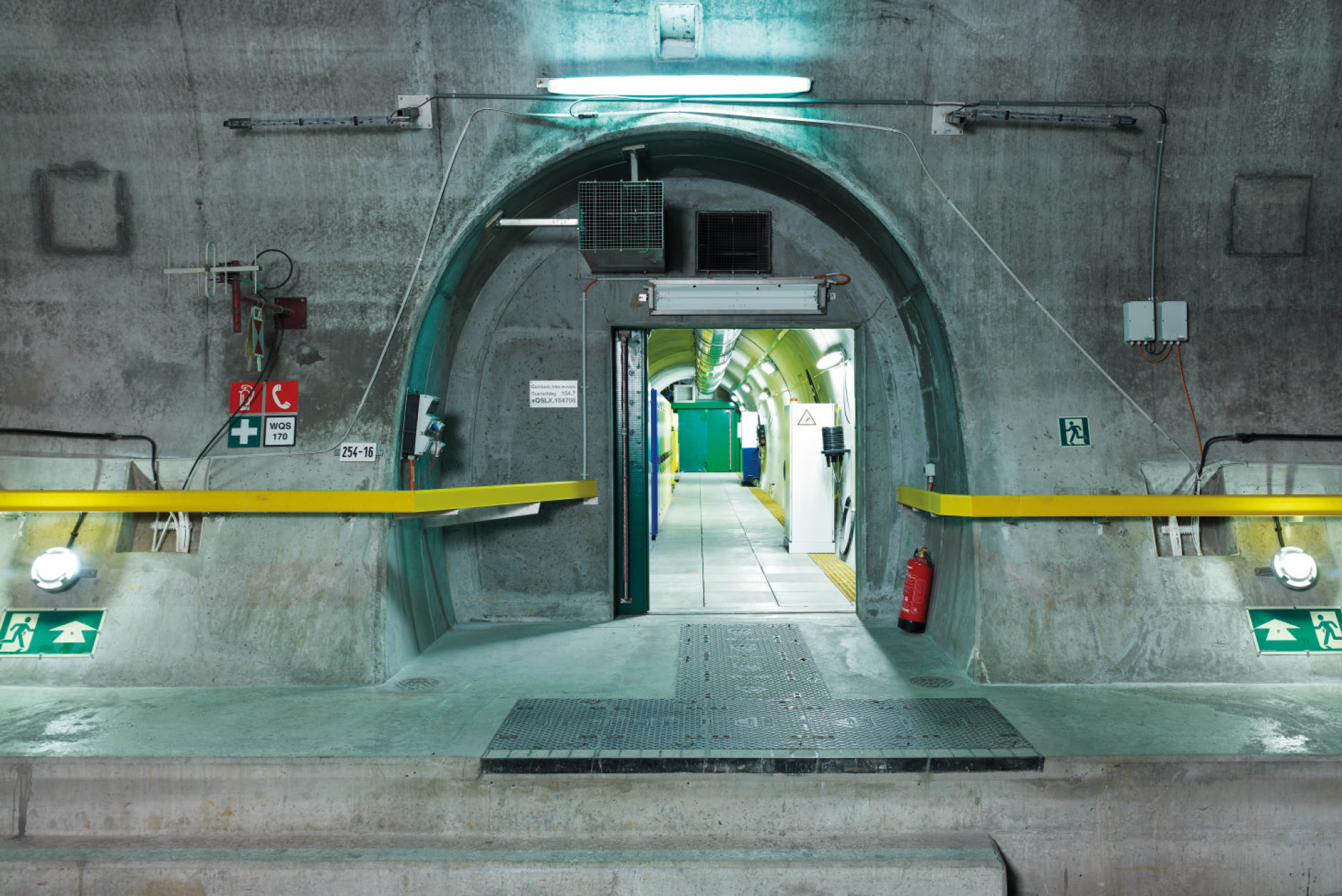With a combined length of 107 km, the Gotthard, Loetschberg and Ceneri (photo) base tunnels are some of the extreme environments in which Swibox electrical enclosures and housings excel.

The New Rail Link through the Alps (NRLA) is one of Switzerland’s most impressive engineering feats in recent times. Two of the three tunnels in this huge project, Gotthard and Ceneri, are fitted with more than 3,500 control cabinets made in Fribourg by Swibox AG. The company, which is headquartered in Balterswil in the canton of Thurgau, is now also overseeing the overhaul of the air-conditioning systems installed in all NRLA control cabinets, including those in the Lötschberg tunnel.
Swibox employs around 60 people at its Fribourg site alone and is famed in Switzerland and beyond for its expertise in the manufacture of electrical enclosures and housing units that are capable of the withstanding extreme conditions. Christian Bracher, the company’s managing director, singles out one project that Swibox is currently working on, “At the moment, we’re busy producing hundreds of housing units for the Paris metro. These will be fitted in every metro station and will hold the control system for opening the train doors.” This is not the only major European commission on the order books of the company which uses around 250 metric tons of stainless steel every year to manufacture its products. Swibox is also involved in a large-scale Europe-wide electromobility project, “A leading producer of fast-charging stations for electric vehicles is planning to install 5,000 of them across Europe in 2024 and has commissioned us to provide the enclosures.”
New product, new facility
For Swibox, 2024 is set be another busy year. In addition to these large orders from customers in Europe, the company is hoping to finalize its ambitious research and development project, which also enjoys the backing of Innosuisse (the Swiss innovation promotion agency) and the Fribourg Development Agency. The aim of the project is to design and manufacture fire-proof electrical enclosures that have none of the shortcomings of the products currently available on the market. According to the managing director, “We have given ourselves three years to produce a new and improved alternative.” The Swibox solution is 30% lighter, has a lower internal temperature and moisture-proof outer surface, and does not produce any internal vapor. “Our enclosure is almost at the end of the certification process and are designed for use in facilities like hospitals, airports and tunnels where it is vital that the electrical installations continue to work even when a fire breaks out.”
The product, which Swibox hopes to bring to the international market, will be made on the company’s two sites in Switzerland (a third site is based in Hungary). With business booming, the company has outgrown its current facility in Fribourg. As Mr Bracher explains, expansion plans are in the pipeline and once complete, “The new facility will provide us with an extra 2,500 m2” and create dozens of new jobs.
